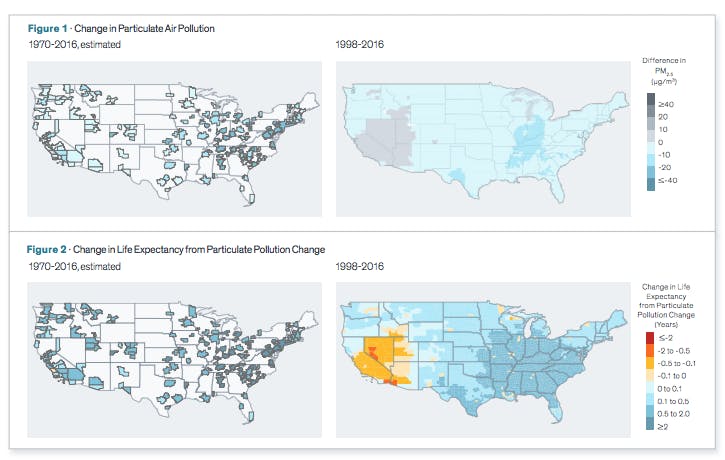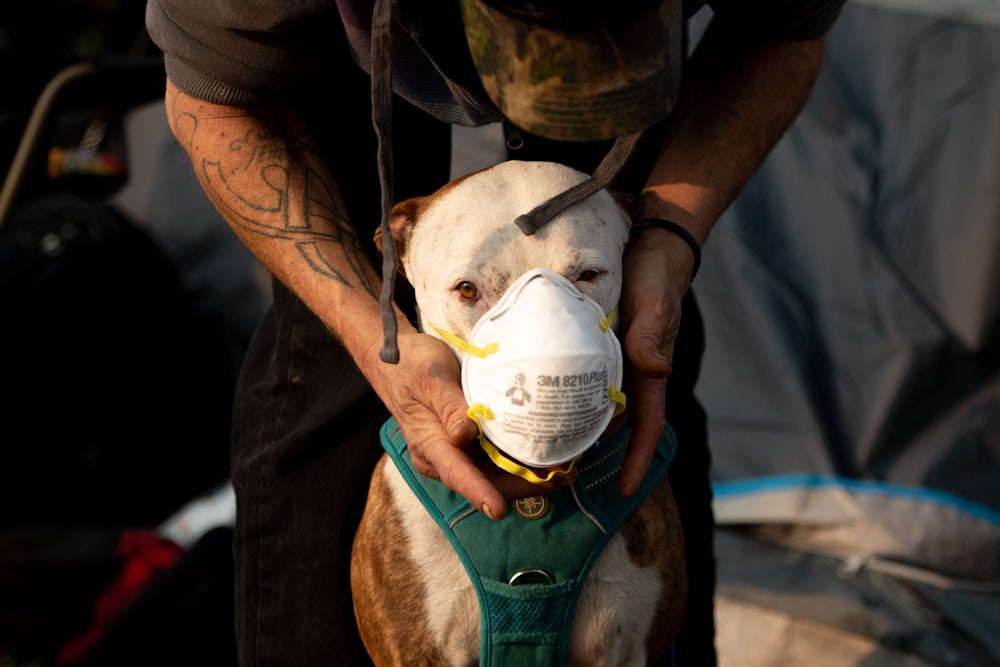Every day, rescuers at the ongoing Camp Fire in Northern California are discovering a new body of somebody’s loved one, burned or suffocated to death. They’re often pulling these people from the ashy rubble of their former communities. This daily activity has no known end date; it must continue until all 870 missing people are found. And even then, the ultimate toll of what has become the deadliest wildfire in U.S. history will be unknown. For some, the long-term affects of breathing in smoke could bring about an earlier end to their lives.
In the middle of a wildfire, exceedingly thick smoke can cause people to immediately asphyxiate. But more limited smoke exposure—the kind millions in the Bay Area are suffering from as a result of the faraway Camp Fire—can also have a long-term effect. California as a whole already has the highest levels of particulate air pollution—otherwise known as smog—in the United States. And as a new index released Monday by the University of Chicago shows, long-term exposure to high-level smog pollution takes a meaningful toll on human life.
The new metric, known as the Air Quality Life Index or AQLI, is an attempt to quantify the long-term health impacts of inhaling particulate matter, which refers to tiny particles of material that can penetrate deep into the circulatory system and potentially infiltrate the central nervous system. Overall, the AQLI asserts that long-term exposure is reducing the average life expectancy by 1.8 years—making it “the greatest current threat to human health globally.”
Americans, for the most part, aren’t affected by this threat. The majority of smog’s affect on human life expectancy comes from smog generated from fossil fuel plants in China and India. But Californians are certainly affected, as their state has the worst long-term air quality in the country. In many areas, the researchers behind the AQLI have predicted, particulate matter pollution has shaved one year off residents’ average life expectancy.

Wildfire smoke is not helping this situation. In fact, some areas of the state now have more smog than the smoggiest cities in the world because of smoke drifts from the Camp Fire and other wildfires. This is producing short-term physical affects in some residents. “I had a bloody throat, bloody nose, a cough, dry and watering eyes, and my throat is still very sore and dry,” a UC Berkeley student told CNN. “I almost passed out trying to go to class yesterday. My professor told me to go home.”
Long-term affects to wildfire smoke are still mostly unknown; most studies on the health impacts of particulate matter come from fossil fuel sources, not wildfires. As the San Francisco Chronicle notes, there are some differences between the two types of smog “that scientists don’t fully understand.” Researchers do guess, however, that smoke from burned residential areas might be more toxic than a pure forest fire, because of the various chemicals contained within man-made materials.
To look for clues on how long-term exposure might affect human health specifically, researchers are looking to fossil fuel pollution studies. Asthma and pregnancy issues thus top the list of potential risks, along with heart problems. “When we talk about particulate matter, we always think, ‘Oh, well, the target organ is the respiratory tract, the lungs,” wildfire smoke researcher Kent Pinkerton told the Sacramento Bee, “but far more people have problems with cardiovascular disease morbidity and mortality due to PM exposure than respiratory conditions.”
But the AQLI has made one impact clear: The more humans are exposed to particulate matter, the shorter their average life expectancy becomes. And humans in California risk getting exposed to a lot more particulate matter as climate change worsens and exacerbates wildfires.
Does that mean Californians are doomed to die earlier than the rest of Americans because of climate change? Not at all; in fact, Californians have the fifth-longest life expectancy of all state residents across the country. But it does mean tackling carbon emissions will be required for them to keep it that way.
